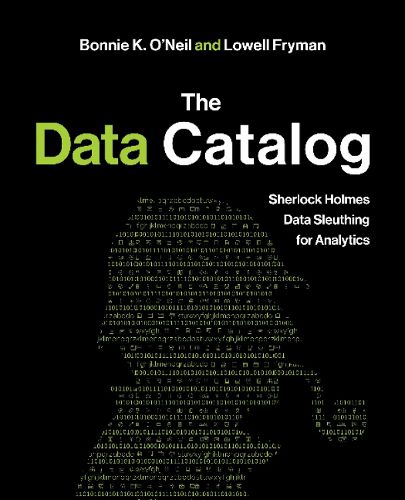Readings Newsletter
Become a Readings Member to make your shopping experience even easier.
Sign in or sign up for free!
You’re not far away from qualifying for FREE standard shipping within Australia
You’ve qualified for FREE standard shipping within Australia
The cart is loading…






This title is printed to order. This book may have been self-published. If so, we cannot guarantee the quality of the content. In the main most books will have gone through the editing process however some may not. We therefore suggest that you be aware of this before ordering this book. If in doubt check either the author or publisher’s details as we are unable to accept any returns unless they are faulty. Please contact us if you have any questions.
Apply this definitive guide to data catalogs and select the feature set needed to empower your data citizens in their quest for faster time to insight. The data catalog may be the most important breakthrough in data management in the last decade, ranking alongside the advent of the data warehouse. The latter enabled business consumers to conduct their own analyses to obtain insights themselves. The data catalog is the next wave of this, empowering business users even further to drastically reduce time to insight, despite the rising tide of data flooding the enterprise. Use this book as a guide to provide a broad overview of the most popular Machine Learning (ML) data catalog products, and perform due diligence using the extensive features list. Consider graphical user interface (GUI) design issues such as layout and navigation, as well as scalability in terms of how the catalog will handle your current and anticipated data and metadata needs. ONeil & Frymanpresent a typology which ranges from products that focus on data lineage, curation and search, data governance, data preparation, and of course, the core capability of finding and understanding the data. The authors emphasize that machine learning is being adopted in many of these products, enabling a more elegant data democratization solution in the face of the burgeoning mountain of data that is engulfing organizations. Derek Strauss, Chairman/CEO, Gavroshe, and Former CDO, TD Ameritrade. This book is organized into three sections: Chapters 1 and 2 reveal the rationale for a data catalog and share how data scientists, data administrators, and curators fare with and without a data catalog; Chapters 3-10 present the many different types of data catalogs; Chapters 11 and 12 provide an extensive features list, current trends, and visions for the future.
$9.00 standard shipping within Australia
FREE standard shipping within Australia for orders over $100.00
Express & International shipping calculated at checkout
This title is printed to order. This book may have been self-published. If so, we cannot guarantee the quality of the content. In the main most books will have gone through the editing process however some may not. We therefore suggest that you be aware of this before ordering this book. If in doubt check either the author or publisher’s details as we are unable to accept any returns unless they are faulty. Please contact us if you have any questions.
Apply this definitive guide to data catalogs and select the feature set needed to empower your data citizens in their quest for faster time to insight. The data catalog may be the most important breakthrough in data management in the last decade, ranking alongside the advent of the data warehouse. The latter enabled business consumers to conduct their own analyses to obtain insights themselves. The data catalog is the next wave of this, empowering business users even further to drastically reduce time to insight, despite the rising tide of data flooding the enterprise. Use this book as a guide to provide a broad overview of the most popular Machine Learning (ML) data catalog products, and perform due diligence using the extensive features list. Consider graphical user interface (GUI) design issues such as layout and navigation, as well as scalability in terms of how the catalog will handle your current and anticipated data and metadata needs. ONeil & Frymanpresent a typology which ranges from products that focus on data lineage, curation and search, data governance, data preparation, and of course, the core capability of finding and understanding the data. The authors emphasize that machine learning is being adopted in many of these products, enabling a more elegant data democratization solution in the face of the burgeoning mountain of data that is engulfing organizations. Derek Strauss, Chairman/CEO, Gavroshe, and Former CDO, TD Ameritrade. This book is organized into three sections: Chapters 1 and 2 reveal the rationale for a data catalog and share how data scientists, data administrators, and curators fare with and without a data catalog; Chapters 3-10 present the many different types of data catalogs; Chapters 11 and 12 provide an extensive features list, current trends, and visions for the future.